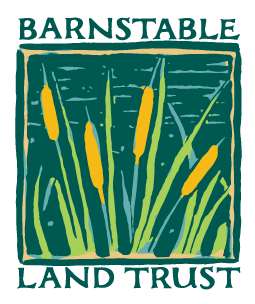In the News: “Funding secured to protect West Barnstable land from development”
By Barbara Clark - Barnstable Patriot
Featured in the Cape Cod Times
BARNSTABLE — The Town Council last month unanimously voted to appropriate $320,000 in Community Preservation funding to acquire 16 acres of conservation land off Falcon Road, not far from Plum Street in West Barnstable.
The wooded parcel is primarily located within a statewide land conservation area that has received a “high priority” for protection initiatives. The funding will be administered by the Barnstable Land Trust, which contributed $27,500 in cash and in-kind contributions to the total purchase price of $347,500.
Janet Milkman, executive director of the land trust, said the town will own the parcel of conservation land, while the nonprofit land trust will hold the conservation restriction, “a legal tool that allows it to be protected in perpetuity,” she said. The trust will monitor the property on an ongoing basis to make sure the land is used as intended.
The conservation restriction ensures that the area is used for passive recreation purposes and “enjoyment of (its) wildlife and open space resources,” and that it’s kept in its natural, scenic condition, protecting the existing wildlife and forest habitat there, including wetlands, native vegetation and wildlife. This meshes with the town’s conservation goals of “preserving quality open spaces ... which protect and enhance its visual heritage.”
'A good steward of the land'
Town Councilor Kris Clark, who represents Precinct 11, praised the land purchase as well as the property’s owner, Mark Wirtanen of West Barnstable, who worked with the trust and the town to make the land purchase a reality.
Wirtanen has lived in West Barnstable all his life and is an active member and former board member of the trust. The parcel, he said, was originally part of about 50 acres covered by cranberry bogs. When he purchased it around 1980, he had “hoped to farm it with blueberries.”
At the time, the parcel did not abut any conservation land, but land transfers over the years transformed the surrounding acreage. He said his parcel will now become part of more than 140 acres of conservation property in the area.
According to Milkman, Wirtanen was committed to seeing that the land remained undeveloped, and he approached the trust about acquiring the acreage that had been in his family for 40 years. The trust worked with him to negotiate a purchase and sales agreement that would reflect that commitment. They then went to the town of Barnstable, forming the partnership that resulted in the property’s acquisition.
“He’s been a good steward of the land,” Clark said of Wirtanen.
The purchase of the property “completes the connection” between sections of conservation land owned by the town in that location, Milkman said, forming part of its eastern segment. Portions of the new parcel intersect with trails that are part of the trust's Cape Cod Pathways system. After the sale is completed early in the new year, the parcel will be added to town maps and will also be included in the trust’s first trail guide to these pathways, which is now underway.
At its southern end, the newly acquired land contains portions of the ancient Native American trail network that passes through West Barnstable and was used extensively by indigenous communities and later by European settlers for both trading and social purposes. Its original length ran from Sandwich through Dennis.
According to the Barnstable Historical Society, the Spruce Pond/Plum Street section of this ancient way “is the only section of the trail left in pristine condition. It has never been bulldozed, paved or relocated.”
Mlkman said the trust worked with local Native Land Conservancy groups, who participated in the successful land acquisition effort.
Milkman called the forested parcel “a lovely spot” and “a great project” that’s especially timely. Right now, she said, the Cape is seeing unprecedented efforts at “further development” of land. There’s “less and less remaining open space, and it’s really important to protect what we have left," she said.
“They’re not making any more land,” Clark said.

